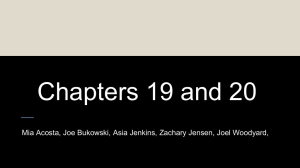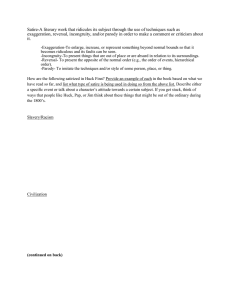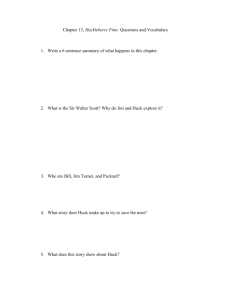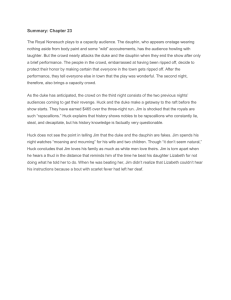Parkville (Chapters 19-20)
advertisement
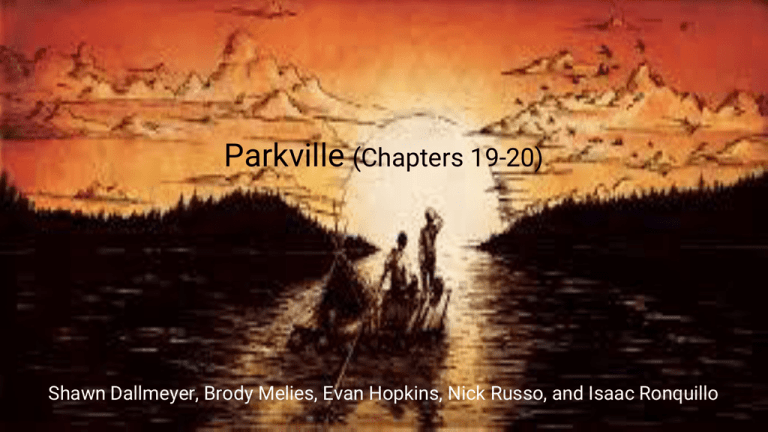
Parkville (Chapters 19-20) Shawn Dallmeyer, Brody Melies, Evan Hopkins, Nick Russo, and Isaac Ronquillo Summary ● One morning, two men come rushing through the bushes towards the water, asking for help from Jim and Huck ● Huck decided to help them ● The two men don’t actually know each other, they are just two criminals who decided that it would be more efficient to work together ● Both men had gotten into trouble for scamming people of a nearby town Summary Continued ● The younger man told Huck and Jim that he was a Duke and the older man told them that he is the rightful King of France ● They were obviously lying, but Huck figured it out, and decided to just let them be as to not cause trouble At the next town, the men decide to carry out the play of Romeo and Juliet, and before the planned night, the men scam some townspeople out of about 91 dollars Summary Continued A problem throughout the chapters before is that they can not travel during the day, because people are trying to say that Jim is their runaway slave When they encounter the Duke and the King they want to travel during the day to speed stuff along, but having Jim will not let them The Duke said he would be able to find a solution and Huck believed him When they arrived at parkville the Duke went to a printing press and printed a sheet that said Jim was a runaway slave, so they could travel during the day Lesson Learned A)Don’t place too much trust in someone you’ve never met because not everyone is who they say they are. B)He learns this lesson when they meet two strangers and their first words are lies about the past. Then when they go to the town of Parkville they wreck havoc when they go to a church and con the members out of their money. C)The evidence is seen when Huck sees through the Duke and Dauphin’s deception, and learns to not trust them after taking advantage of the church members. They needed the Duke because he had devised a plan to sail during the day. Literary Devices 1. “you see that ax go up again, and by the time it’s above the man’s head then you hear the k’chunk” (Twain 118). Twain uses onomatopoeia in order to give the reader a proper image of what the novel is trying to communicate. 1. “When we got there, there warn’t nobody stirring; streets empty, and perfectly dead and still, like Sunday.”(Twain 119). Twain uses personification to describe the streets which can not be dead. This allows the reader to feel like they are in the novel and can experience what the Huck, and his crew does. Literary Devices continued 1. “Goodness sakes, would a runaway nigger run south?”(Twain 115). This gives the reader of a basis sarcastic and somewhat surprising theme. This gives the reader an idea of what the characters might act like later in the chapter.
